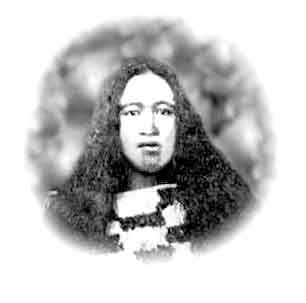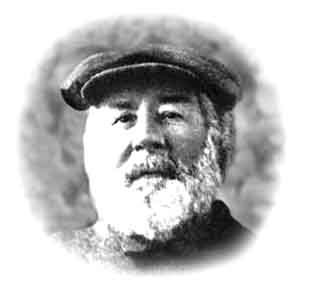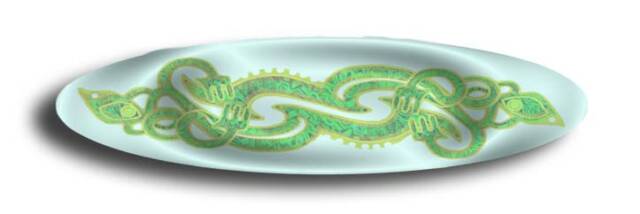Benedict Benjamin BIDDLE m
The Benjamin Biddle Story
THE adventurous conditions of life in early Colonial days produced two kinds of frontiersmen. There were the rough unlettered bush-fighters and scouts and borderers, many of whom lived semi-Maori lives and married native wives. There were men of gifts and culture who made capable leaders, who became perfect in their knowledge of forest warfare, and who in days of peace held official positions in the service of their country.
There were many of the former class who could be cited, hard plucky fellows who fought in the Maori way and whose wives sometimes followed them on the war-path, fit mates for their tough bushranger-like pakehas. Most of these men were colonial-born and used to rough conditions of living from their youth.
Their officers were such men as Roberts, the Mair brothers, McDonnell, Northcroft, Gascoyne, Preece, Jackson, Messenger, Gudgeon, Harry Atkinson—they were some of the natural leaders who emerged from the ranks of the settlers, with here and there a surveyor and a sailor. Some came from military families; most were farmers and many of them New Zealand-born. When the gunpowder smoke cleared away from the outer lands they served their country well in the cause of peaceful settlement.
These men have all gone; the conditions of life that produced them have vanished before the now levelled out and standardised New Zealander. Their like can never be seen again, those old pakeha-Maori bushmen scouts so distinctive of the breaking-in age of the Colony.
Like the vanishing birds, their life was bound up with wild forest life. Their highest development was attained through grim necessity in the frontier warfare of the ’Sixties and early ’Seventies, in bush chases, scouting expeditions, ambuscades, often lone-handed adventures, not surpassed in peril even by the episodes of the Indian border warfare in America.
The last survivor of the old bushman-scout type was also the last survivor of the gallant little band who wore the New Zealand Cross. This decoration, the rarest of all military honours in the British Empire, was awarded to only twenty-three officers and men, and Benjamin Biddle, pakeha-Maori, was the last to go.
Ben Biddle was as clear-cut a character as any Leatherstocking or Quartermain of fiction. He was an Aucklander-born, the son of an old British regular soldier. He was short and stocky, very thick through the chest and shoulders, and with his jolly ruddy face and hearty downright manner, a voice fit for a deep-sea bo's'n in a gale, he reminded me of Edward Jerningham Wakefield's description of Richard Barrett, the whaler, a celebrated figure in early New Zealand history.
He made a name in the Hauhau wars for his enterprise and disregard of danger. He was sometimes in trouble with military officers who had incurred his contempt by their ignorance of bush warfare or their excessive caution, but when men were needed for the fighting line the call was always for Biddle and men of his kind. In his youth he was a sailor on the coast, and he served in Captain Jones' cutters trading to the Bay of Plenty, often taking wheat to Auckland from Uretara Island, in Ohiwa Harbour, and other places along the coast.
Before the war, he was on a Hawke's Bay station breaking in horses, with Tom MacDonnell, afterwards lieutenant-colonel in the New Zealand Forces. He was a true type of the pakeha-Maori. His wife was a native of Whakatane, and she sometimes accompanied him when they were out on duty during the Maori war’s.
To his abilities as tracker and scout, and his capacity for hard marching in rough bush country with a heavy swag of ammunition and provisions, Biddle added exceptional skill with rifle and revolver.
He was considered the best revolver shot in the Armed Constabulary at the end of the ’Sixties. With his six-shooter he could split a thin stick set in the ground twenty-five paces away, just raising his revolver easily and scarcely pausing to take aim. On the warpath he carried two revolvers, and always had a tomahawk in his belt.
Our old warrior served on both the East and West Coasts in the campaigns of 1868–70. At the siege of the hill-fort Ngatapa, in the Poverty Bay hinterland, in 1869, Major Ropata and Constable Benjamin Biddle were the first two men into the Hauhaus' outwork.
For their plucky deeds in this siege both received the New Zealand Cross. Biddle's most conspicuously gallant work was holding a narrow ridge in the rear of the skytop fortress, preventing the Hauhaus' escape. In this greatly difficult and perilous duty he had one comrade, Solomon Black; he, too, received the New Zealand Cross.
Biddle was a member of Colonel Lambert's force despatched to Mohaka, Hawke's Bay, immediately after the massacre there by Te Kooti in 1869. Colonel Lambert was extraordinarily cautious; he declined to attack Te Kooti, although Biddle, on a lone scout, discovered that the Hauhaus were only a few miles away, at Arakanihi. They were enjoying the liquor looted from the two hotels at Mohaka, and in their drunken condition could have been cut up had a vigorous attack been made.
Ben went out again, alone, and at Te Putere, near Lake Waikaremoana, he found the enclosure where the raiders kept about a hundred horses looted from Mohaka. He broke open the fence to let the stolen horses out and nearly all of them returned to Mohaka. Still the Colonel waved off Biddle's report and his advice to attack, and the disgusted scout gave up the endeavour.
The only method of “squaring the yards,” as he expressed it sailor-fashion, with the cautious officer, came after the war, when he named his most troublesome working-bull he used on his farm “Lambert,” in disrespectful memory.
Long after the wars, when Biddle was squatting in one of the Urewera villages at Ruatoki—his wife Mauri Poiakino was partly Urewera—some disagreement arose with the local iwi. His Maori neighbours threatened to send him out of the place and put him across the confiscation boundary line just past Taneatua which divided the Maori land from the European-owned Opouriao run.
A meeting was held by the local iwi, and six strong young Maoris were told to move Benjamin from the valley. Ben was forewarned, and when the eviction party entered the garden plot in front of his whare and marched toward him, he went out to meet them with his loaded revolver in his hand.
“What do you want here?” he asked sternly.
“We have come to shift you, Ben,” the leader of the party replied.
“Haere atu! Get out, or I'll shoot!” After Ben leveled his old six-shooter at them
“They couldn’t get out of Ben's garden quick enough,” said a neighbor of the old scout.
The veteran was not molested again. He was not a man to be bullied.
He eventually left Ruatoki, and lived with his whanau at Kopeopeo in Whakatane.
When I last talked with him there, in 1921, he lay disabled by an accident to his legs on Whakatane Wharf, but he was a cheery soul, always ready to recall the old forest days and to narrate his Hauhau-chasing days and long hard marches through the unroaded forests and mountains.
In his crippled old age he was cheered now and again by a visit from old friends of his bush-scouting, bush-clearing, bullocking days when one could march all day with a seventy-pound swag, camp anywhere, and be up in an instant for a skirmish with Te Kooti's or Kereopa's men.
Benjamin Biddle died in his home with whanau by his side at Whakatane in 1933, he was ninety.
New Zealand Cross Awarded
Constable Benjamin Biddle
1st Division
Armed Constabulary
1869
Website designed using Homestead
Please send an email if you wish to make contact relating to anything on this site
=================================================================================
Copyright © 2000
All content on this site, remain the property of Epuro Hands International Limited and are protected by
New Zealand and International copyright laws.
No part of this website may be reproduced without the expressed, written permission of
Epuro Hands International Limited at http://www.epurohands.com
==================================================================================
Edward Biddle
(1820 - 1871)
Whakapapa
All information provided in this website have been done by family who have contributed what they knew to be correct at the time of publishing. Although mistakes have been made and or are probably still not quite right or true, then please help us correct them by commenting in our guest book below. All correspondence will get to the website manager for corrections, deletions and additions. na mihi




